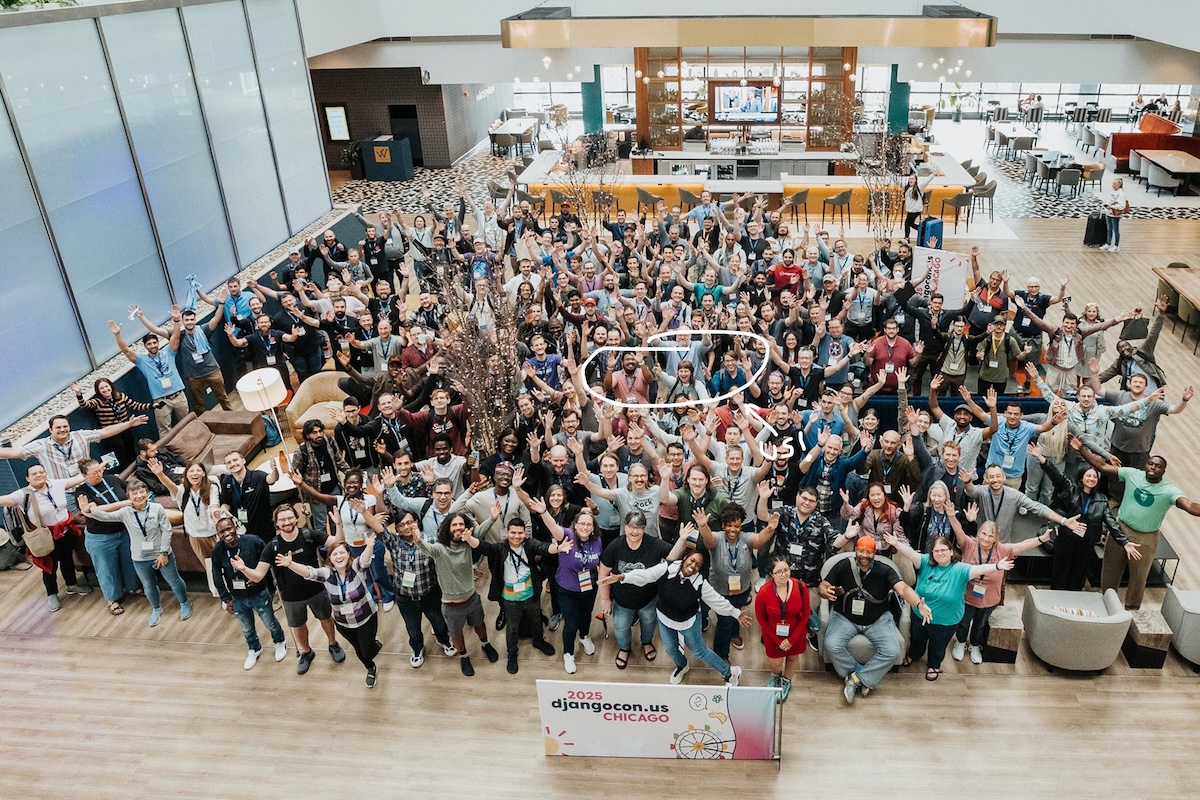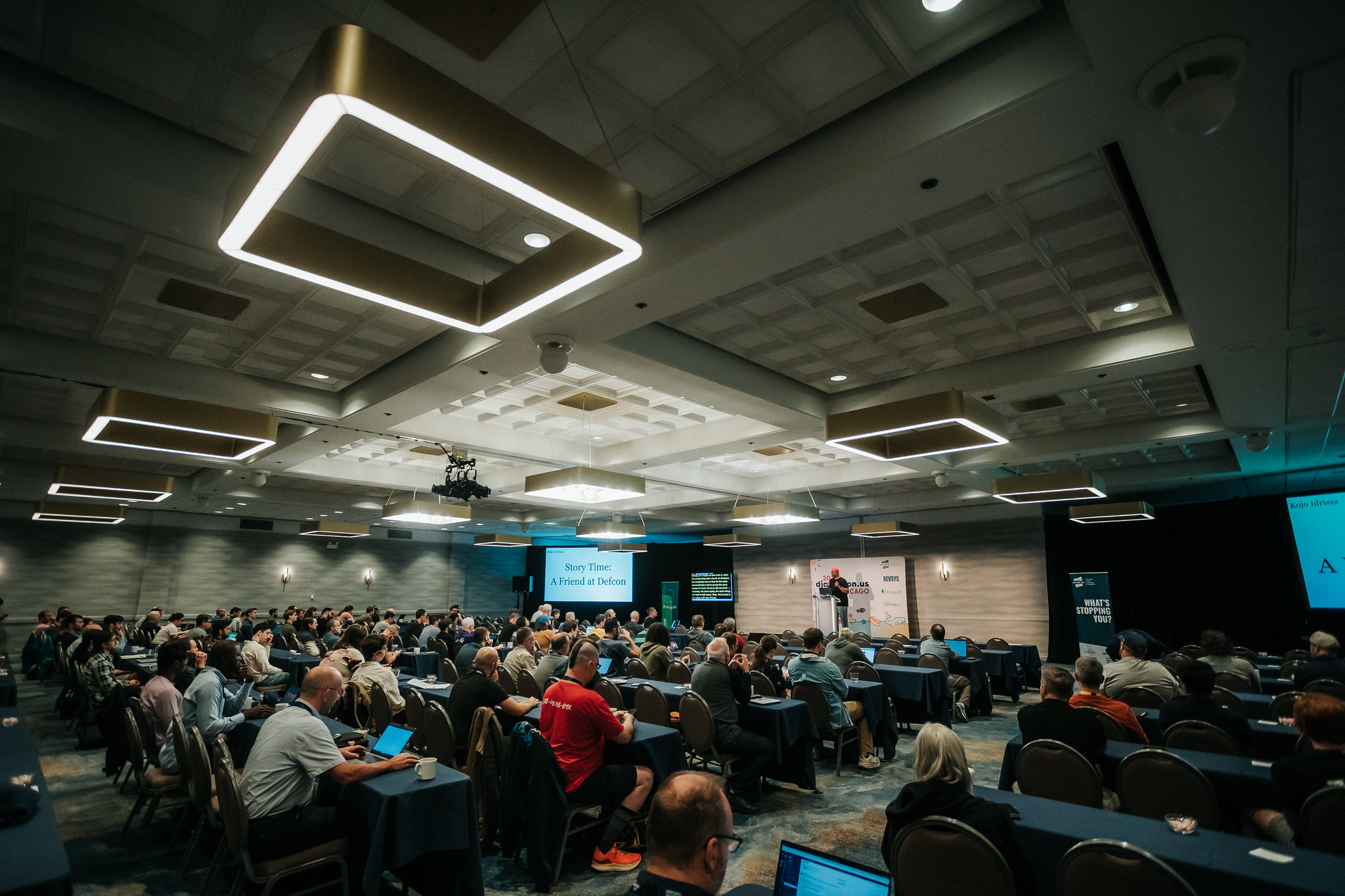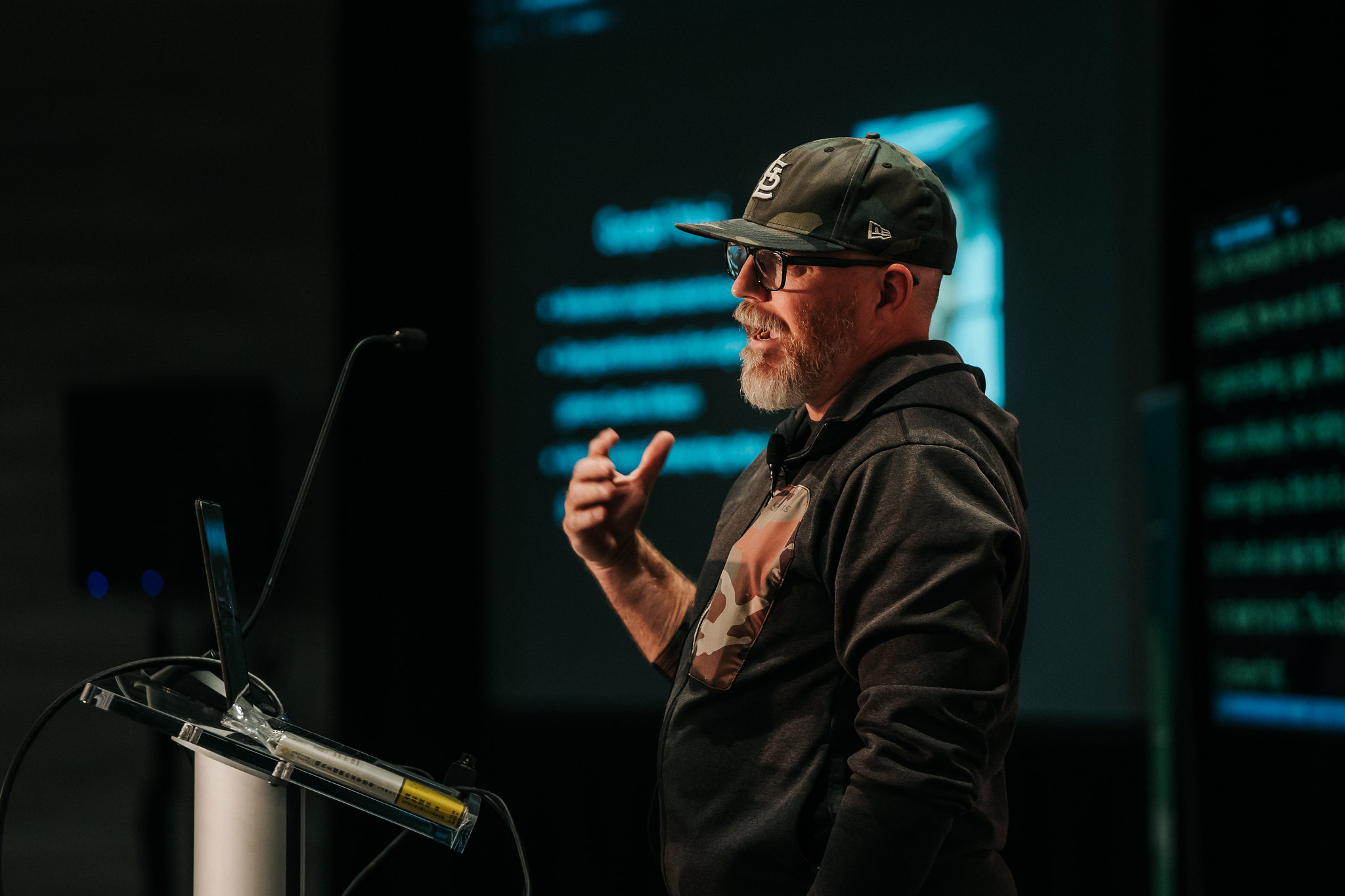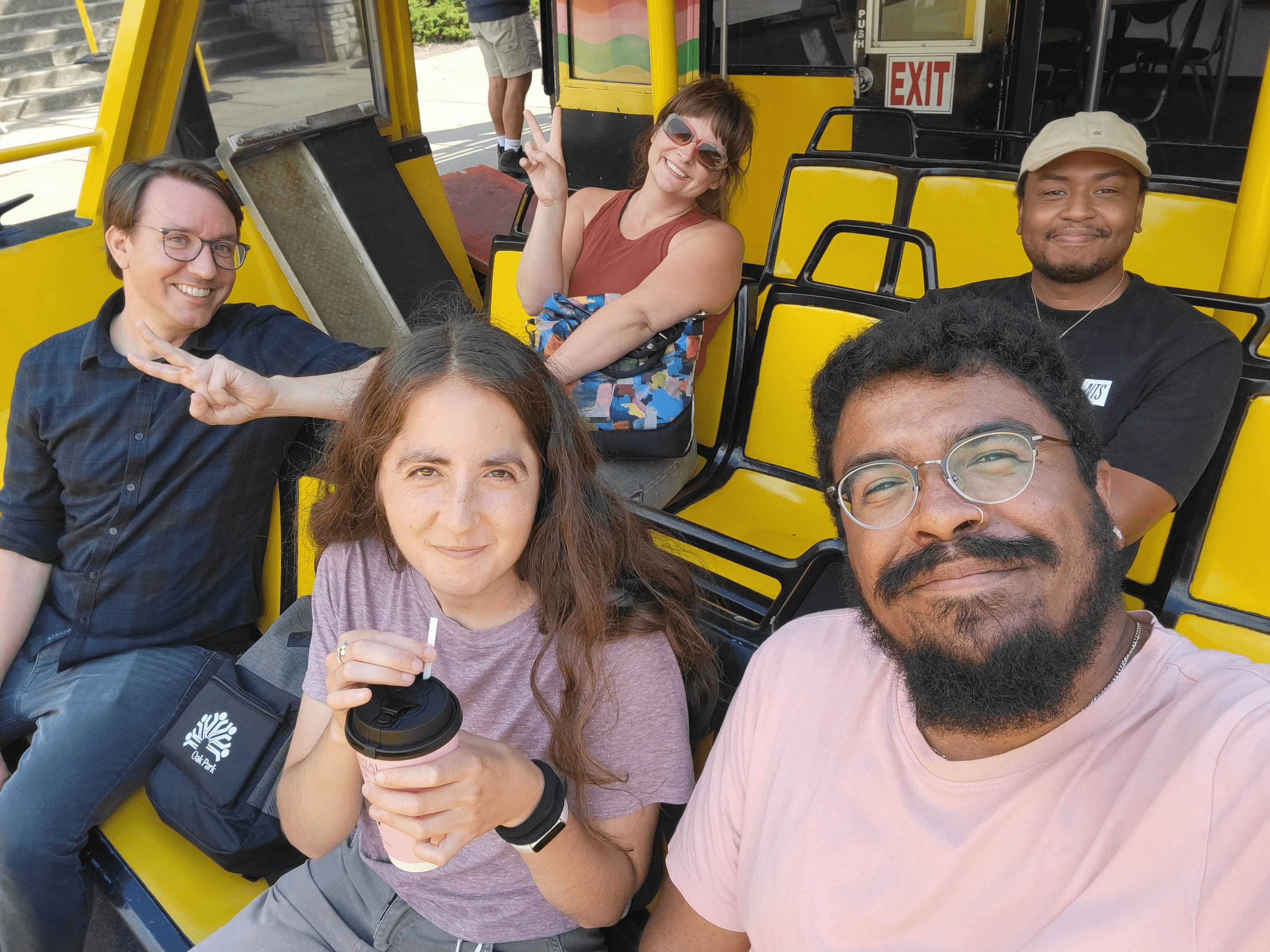Our Week at DjangoCon 2025
We spent our fall retreat in Chicago, downtown at DjangoCon 2025. Here’s how it went.
Published October 31, 2025
Some of us in the middle of the conference-wide photo.
DjangoCon 2025 coincided with DataMade’s Fall Retreat. Since it happened to be held at our home base in Chicago, and since Django is the cornerstone of our tech stack, we swiftly decided to attend! For some of us, it was our first time attending a technical conference, and for others it had been a while since their last one.
It was a fruitful and stimulating experience. It was also de-mystifying: so this is what it’s like to attend a conference.

The opening remarks in the central conference room.
For anyone (like myself) who has spent most of their nascent professional life intimidated by the idea of conferences, DjangoCon proved that conferences could be loose—a low stakes choose-your-own-adventure instead of a pressurized networking container. The opening remarks had their own opening remarks, which functioned as a pep talk for social anxiety.
One of the adventures we could choose was to attend the conference as an anonymous receptacle for the ideas in the talks. Reflecting as a team, we agreed that this was one of the biggest strengths of the experience. It was energizing to pick your head out of the proverbial sand of your idiosyncratic long-term projects, and then resituate yourself in the consensus reality of developers using similar tools as you on a regular basis. At the same time, it was energizing to sit in your own little bubble and ideate on how you could creatively wrangle what you were hearing back into your sand pit.
Back in 2014, Adrian Holovarty—one of Django’s founders—gave a talk about bootstrapping as the distinct ethos of the Chicagoan development community. He positioned it in specific contrast with the ethos of Silicon Valley. He argued that the Chicagoan tech identity rested on the pure love of the game, more than the pursuit of flashier indicators like external investors and exponential scaling. “They [these theoretical, scrappy, coding Chicagoans] build products because they love the work, the craftsmanship, the pride in building and creating,” he stated. “They want to make a good living, but, just as important, they want freedom—financial freedom, of course, but equally importantly freedom from people telling them what to do.”
A lot has changed since then. “Civic tech”’s time as one of the buzziest words in software development came and went. Holovarty moved from Chicago to Europe. We’ve watched many leaders in the global tech space shamelessly re-align themselves and their products with rightwing and fascist practices. Across the board, budget resources continue to be sweepingly allocated towards the military, policing, and nebulous tech bubbles like AI (and, specific to Chicago, towards quantum computing, which feels orthogonal to Holovarty’s pleas for Chicago to not be fashioned into an imitation of Silicon Valley). But, the Chicagoan developers Holovarty was talking about were definitely the ones, 10 years on, who gathered downtown for this conference.
The Conference

Carson Gross giving the day 1 keynote talk.
The two hottest topics were (predictably) the role LLMS and AI agents should play in a developer’s workflow, and the perceived decline of Django’s popularity relative to web frameworks that play smoother with Javascript, like NextJS.
There was a lot of ambivalence towards JavaScript from people who don’t really use it or think about it, and there were people kind of lovingly noting its frustrating nature relative to Python that have found creative ways to plug JavaScript web frameworks into Django backends. One keynote speaker, Zags, firmly took the stance that Django needed to formally make itself amenable to the JavaScript ecosystem as a means of existential survival.
Another keynote speaker was Carson Gross, the creator of HTMX, which was created for stateful, interactive apps that didn’t need to plug in any JavaScript or invoke the machinery of a web framework at all—it works directly in HTML templates, instead. At DataMade, we use React with Django. I didn’t hear React mentioned by name at the conference at all. Vue, a competitor, was mentioned several times. This is perhaps on brand for the bootstrappers, since while they fulfill similar functions, React is the enterprise-grade industry standard, whereas Vue is also popular, but built for fast mid-size apps instead of large-scaling. Although, watching Mike Hoolehan’s talk where he connected a Django backend to Vue in a live demonstration, it seems like both require a comparable amount of code maneuvering to get everything connected. So, as it stands, there isn’t necessarily a non-situational better choice.
The discourse on AI sucked up more of the oxygen at the conference than JavaScript did. A handful of speakers cited “vibe-coding” as something they were doing regularly. “Vibe-coding” means letting an AI agent that lives in your IDE code the project while you occasionally dictate. Not, apparently, listening to a playlist you meticulously curated and coding somewhere with your friends (which was my first guess).
A lot of the conference-goers seemed to respond to descriptions of AI-driven coding with hostility. Although, most likely, the silent majority of participants (like us) have a more nuanced relationship with it than either handing over the keys to the car or shutting it out altogether.
One of the highlights of the conference was a satirical talk called A(I) Modest Proposal, by Mario Munoz, that played on the eighteenth century satire by Jonathan Swift addressing the social issue of social inequality to critique the current, bigger-picture reality of AI. Swift suggested that poor people in Ireland could ease their economic troubles by selling their children as food to the elite. Munoz suggested that the alarming surplus of recent computer science graduates, unable to find work and unwilling to pivot to the service sector, should get fattened up by doing open source work for a year or so before being sacrificed to feed AI (or something like that). Munoz’s talk was a morbid but welcome reminder that the social and environmental externalities of the infinite-growth, racism-rooted, clinical-optimization philosophies underwriting the giant companies that control the AI we’re all using could make most aspects of the human experience trivial in the near term. The bootstrappers gave it the only standing ovation of the conference.
Side Quests
We, of course, also made time outside of the conference to hang out around the city and do the usual retreat things.

Boba tea and the ferry back downtown from Chinatown.
Cheers to a great week.
